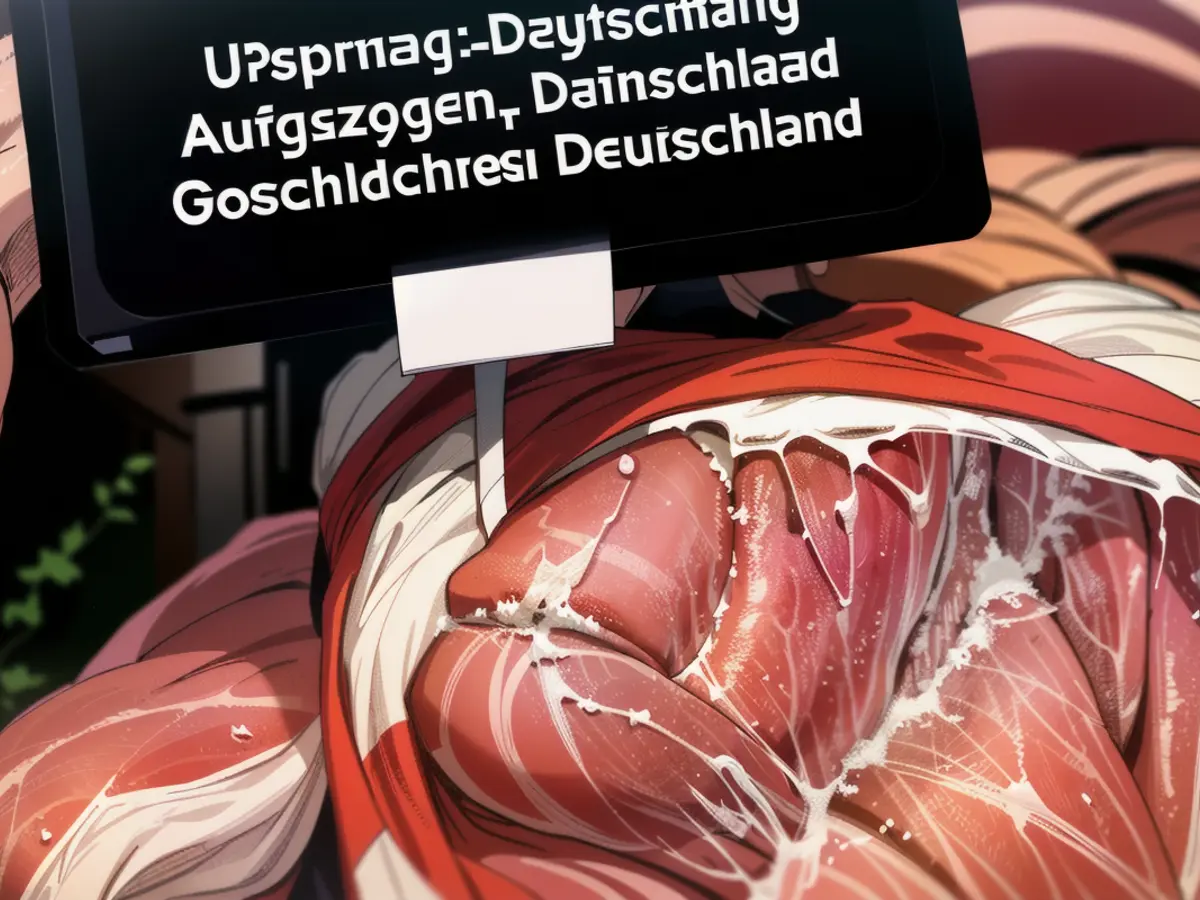Nourishment - Özdemir lobbies in Brussels for increased labelling of origins.
German Agriculture Minister Cem Özdemir recently advocated for increased origin labeling on food products during a gathering with fellow EU counterparts. Austria, France, and other nations backed him, insisting that more food items than before should clearly show their place of origin. This way, consumers can make informed choices about their purchases, Özdemir argued.
The 58-year-old politician also criticized the EU Commission for not proposing improved food labeling, as promised. "We'll keep pushing," he declared. Country of origin must already be noted on many food products, like fresh fruits and veggies.
Since February in Germany, the rearing and slaughtering sites must be disclosed on labels for unpackaged pork, sheep, goats, and poultry.
Özdemir prefers labeling "everywhere"
To emphasize his resolve, Özdemir described his solo campaign effort: "We must press forward in areas where Europe is doing nothing." Ideally, Özdemir wants to introduce labeling "everywhere" so citizens can identify if a product hails from their homeland.
Denmark's Agriculture Minister Jacob Jensen voiced concerns, though. A mandatory origin label could lead to food waste, and it could also create administrative headaches and hike up prices, he warned.
Meanwhile, as the ministers met, European dairy farmers took to the streets, demanding a better income. Decked out in cow figurines representing their respective countries, these protesters advanced under the banner "A fair income for farmers now!" The European Milk Board, uniting dairy farmers from over 15 countries, organized the demonstration.
Özdemir visited the protesters and praised their stance, adding, "Don't heed those who claim that the fight against climate change, species extinction hurts German agriculture." He also took aim at the EU's agricultural policy, for focusing overly on subsidies - a move that's left dairy producers struggling.
Austria brought up wolf regulation during the meeting, as these protected predators, including wolves, increasingly roam the European Union, causing issues in agriculture and forestry. The Austrian Agriculture Ministry pressed for exceptions to protective regulations in specific areas like the Alps, which have long relied on extensive farming practices. A qualified majority of EU nations shares Austria's concerns.
Özdemir expressed empathy for Austria's proposal. "Yes, the wolf is back, but in my view, farming has lost nothing," the minister remarked. He couldn't picture a practical solution, such as fencing, for protection against wolves on dikes or meadows. "Should we really construct fences everywhere? That's a bit excessive," Özdemir commented. This could harm nature conservation if countless fences were built in those areas.
FDP Bundestag member Ulrike Harzer hailed Özdemir's approach as a noteworthy progress. "In the best interest of farmers and livestock keepers, it's now crucial to urge our green environment minister colleague Steffi Lemke to endorse lowering the protection status," she said.
Read also:
- Lack of snow also opens up new opportunities for winter tourism
- Abrupt end to e-car subsidies
- The chemical industry has little confidence
- Intersport boss hopes for sales boom through sporting events
- Minister Cem Özdemir from Austria's neighboring country, Germany, advocated for increased origin labeling on food products during a gathering with other EU Agriculture ministers, including those from Austria, France, and other nations.
- To emphasize the importance of origin labeling, Özdemir criticized the EU Commission for not proposing improved food labeling as promised, stating that they would keep pushing for this change.
- Country of origin is already noted on many food products, like fresh fruits and veggies, but as of February in Germany, the rearing and slaughtering sites must be disclosed on labels for unpackaged pork, sheep, goats, and poultry.
- In Brussels, Özdemir also visited European dairy farmers who were protesting for a fair income, praising their stance against those who claim that fighting against climate change and species extinction hurts German agriculture.
- During the meeting, Austria brought up wolf regulation, as these protected predators, including wolves, have started causing issues in agriculture and forestry within the European Union.
- Cem Özdemir expressed empathy for Austria's proposal, but he couldn't picture a practical solution for protection against wolves on dikes or meadows without harming nature conservation if countless fences were built.
Source: www.stern.de








